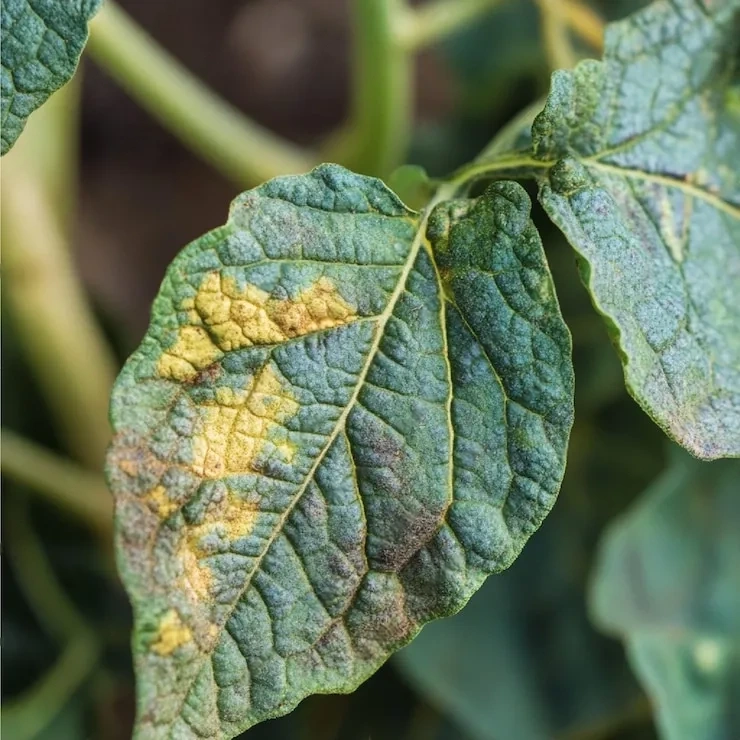Zinc is one of the most important micronutrients required for the healthy growth of plants. Even though plants need it in small amounts, its deficiency can severely impact plant health and crop yield. Farmers and gardeners often overlook zinc deficiency until their plants start showing serious symptoms. The best way to combat this issue is by using zinc sulphate fertilizer, a highly effective and widely used solution to replenish zinc levels in the soil.
Understanding Zinc Deficiency in Plants
Zinc plays a crucial role in plant growth, influencing enzyme activation, protein synthesis, and chlorophyll production. It also helps in root development and overall plant metabolism. When plants do not get an adequate amount of zinc, their growth is stunted, and they may develop various visible symptoms that indicate nutrient imbalance.Common Signs of Zinc Deficiency
- Stunted Growth: Zinc-deficient plants fail to grow properly, leading to reduced plant height and limited root development.
- Interveinal Chlorosis: One of the first visible symptoms, leaves start to turn yellow between the veins, while the veins remain green.
- Leaf Deformation: Small, misshapen, or curled leaves are common indicators of zinc deficiency.
- Delayed Flowering and Fruiting: Plants lacking zinc struggle to produce flowers and fruits on time, reducing overall yield.
- Necrotic Spots: Brown or dead patches may appear on the leaves due to severe zinc deficiency.
- Reduced Tillering in Crops: In cereals like wheat and rice, zinc deficiency can lead to fewer tillers, resulting in lower productivity.
Causes of Zinc Deficiency
- Soil pH Imbalance: Zinc becomes less available in high pH (alkaline) soils.
- Excessive Phosphorus Fertilization: High phosphorus levels can block zinc absorption.
- Sandy or Calcareous Soils: These soil types often have low zinc availability.
- Soil Erosion and Leaching: Heavy rainfall or improper farming techniques can wash away essential micronutrients like zinc.
- Continuous Crop Cultivation: Growing crops without replenishing soil nutrients depletes zinc reserves.
How Zinc Sulphate Fertilizer Can Help
Using zinc sulphate fertilizer is one of the most effective ways to correct zinc deficiency in plants. It is a water-soluble fertilizer that provides zinc in an easily absorbable form, ensuring plants receive adequate nutrition for optimal growth.Benefits of Using Zinc Sulphate Fertilizer
- Quick Correction of Deficiency: Zinc sulphate provides an immediate solution to zinc-deficient plants, restoring their health rapidly.
- Improved Photosynthesis: It helps in chlorophyll formation, ensuring that plants can efficiently convert sunlight into energy.
- Enhanced Root Development: Zinc supports healthy root formation, leading to better nutrient and water absorption.
- Increased Crop Yield: Proper zinc nutrition ensures higher productivity in crops like wheat, rice, maize, and vegetables.
- Better Disease Resistance: Plants receiving adequate zinc have stronger immune responses, reducing susceptibility to infections.
- Improved Fruit and Seed Quality: Zinc promotes better fruit setting, seed development, and overall quality of produce.
How to Apply Zinc Sulphate Fertilizer
There are multiple ways to use zinc sulphate fertilizer effectively:- Soil Application:
- Apply 10-20 kg per hectare for most crops.
- Mix with organic manure or other fertilizers for even distribution.
- Foliar Spray:
- Dissolve 0.5% zinc sulphate in water and spray directly on leaves.
- Recommended during early growth stages for quick absorption.
- Seed Treatment:
- Coat seeds with a 2-4 gm zinc sulphate solution per kg of seeds before sowing.
- Ensures healthy germination and early plant growth.
- Fertigation:
- Apply through drip irrigation systems for efficient nutrient delivery.
- Prevents wastage and ensures uniform nutrient availability.
Preventing Zinc Deficiency
To avoid zinc deficiency in plants, it is essential to adopt the right farming practices and use zinc sulphate fertilizer as a preventive measure rather than a corrective solution. Here are some tips:- Regular Soil Testing: Check zinc levels periodically to determine fertilizer requirements.
- Balanced Fertilization: Avoid excessive phosphorus fertilizers that hinder zinc absorption.
- Crop Rotation: Plant zinc-efficient crops alternately to maintain soil fertility.
- Organic Matter Addition: Incorporate compost or manure to improve soil structure and zinc availability.
Boost your farm productivity today with BulkAgroChem's Zinc Sulphate Fertilizer—the key to healthier plants and higher yields!




